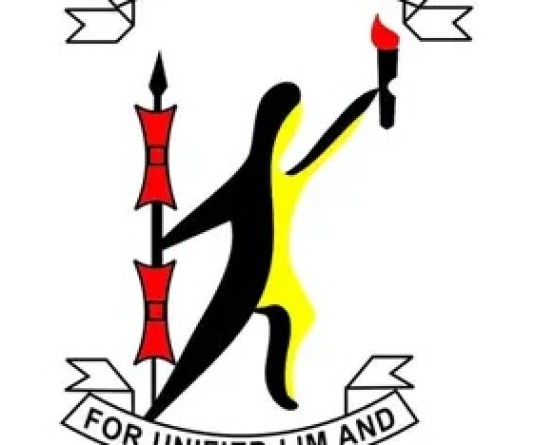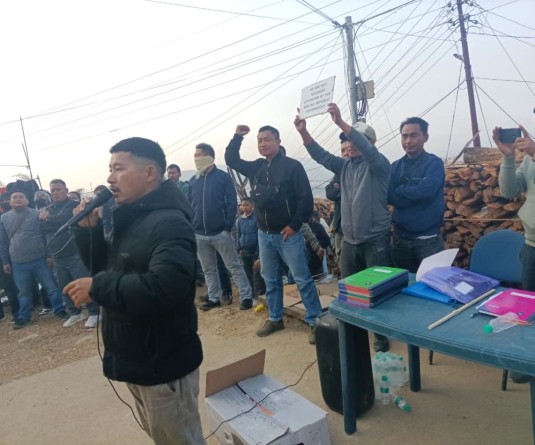
Rev Dr Zelhou Keyho
General Secretary
Nagaland Baptist Church Council
What has caused the NLTPA to become an issue? Of late we have seen the issue coming out in public domain for discussion and the focus has been on the failure of the Act. If it has, what are the factors leading to its failure? These are the questions to be considered and deliberated. The logical conclusion is that the Act was legislated to be implemented and not be left in the cold storage. There are multiple opinions doing the round. The church (NBCC) has often been blamed as if it has done a disservice to the society.
There has been strong objection on the voice of the church against NLTP. Some people are of the opinion that the church cannot impose her morals onto the secular society. If by this they mean that the church cannot impose theocracy, they are right. But as a Christian majority society, if they mean that the church should not contribute into the formation of societal standards and welfare, it is wrong. We are all responsible in building a God loving-God fearing society. There is neither major evil nor minor evil. Whatever takes away our Christian testimony is detestable in the sight of God. In this sense, and more importantly in the area of building a society with Christian principles, there is no separation of church and state when our fight is for the good of the society.
When it comes to the menace of liquor in our society, several opinions are doing the round. There are people who opine that the Act should be totally done away with. Arguing that the church should not define what is right and what wrong for the society. Others argue from revenue perspective, as if NLTPA has drained the state revenue dry. There are still others who propose for a trial approach without knowing the Act of 1967.
The unregulated Act created havoc in our society just in two decades. Random issuance of permit and license became the main issue leading to a situation which went out of control. The regulated Act miserably failed! Had that Act been implemented, the Act of 1989 could have a better success. Now what has comes out forthright is that the Act does nothing good to the society and the revenue generated can be used for greater good. This approach is nearsighted without realistic projection. The bottomline is nothing but to say, let liquor do whatever it can do to our society, it is good enough if we can generate revenue. This is horse trading approach just because our eyes are fixed on something else without seriously considering the pros and cons.
The Nagaland Excise Act of 1967 though, was a regulated Act, proved to be a failure. In the Act, the power, the penalties, the procedures and the limitations were clearly defined. For example, unlawful possession, penalty for altering or attempting to alter and adulteration. All these did not worked because there was no proper control factor. In the control factors, the Deputy Commissioners and control officers were empowered even to the extend of checking and control of sale and issuance of license.
Yet, even under the Act, there was rampant manipulation. This led to an uncontrolled situation where liquor was let loose in Nagaland. It became a business run and controlled by few and those who could not get into the system sought other alternatives.
In a situation such as that, the 1967 Act was legislated in order to control the situation. The government attempted to regulate the manufacture, possession and sale. Chapter IV clause 1:14 reads, Except under the authority and in accordance with the terms and conditions of a licence granted in that behalf by the Collector or by the Excise Commissioner-
(a) no intoxicant shall be manufactured;
(b) no hemp plant (Cannabis Sativa L) shall be cultivated or collected;
(c) no liquor shall be bottled for sale ;
(d) no distillery or brewery shall be constructed or worked; (e) no person shall use, or have in his possession any materials, still, utensil, implement or apparatus whatsoever for the purpose of manufacturing any intoxicant other than zu and rohi: Provided that nothing in Clauses (c) and (e) shall apply to zu and rohi in the areas other than town boundaries of the administrative headquarters.
Further chapter IV clause 15 was regulated to bring in new dispensation through proper control and thus,
The Excise Commissioner, with the sanction of the State Government was directed to: (a) establish a distillery, in which spirit may be manufactured under a licence granted under Section 14, on such conditions as the State Government thinks fit to impose;
(b) discontinue any distillery so established (prior to the Act); (c) licence, on such conditions as the State Government thinks fit to impose, the construction and working of a distillery or brewery;(d) establish or license a warehouse wherein any intoxicant may be deposited and kept without payment of duty; and (e) discontinue any warehouse so established.
We have to be rational, logical and not just assert things without ascertaining the history of the legislated Act of 1967 and 1989. Why the regulated Act of 1967 failed and why the NLTPA of 1989 is still in the cold storage? In both the Acts, there is an element of regulated business, controlled and supervision. But those were never put to motion. This has created a situation where people who are suppose to be interpreting and implementing have started talking irrationally.
The church will be the first to admit that the Act have not saved the flow of liquor much less the problem of addiction to alcohol. Our people are caught in the predicament then and even now. This is an unfortunate state of affairs. It would do better if the stake holder can come up upfront and discuss, the difficulties openly because the menace of addiction be it alcohol or drug is concerning. We cannot simple say, in order to deal with one problem, we have to relax another. This is mere escapism.
The problem we face are real and it must be addressed with all seriousness and not push anything aside. Responsible people must play parental role at this critical juncture. We cannot take the hedonistic approach to dealing with our problems. We have to be rational and logical.
It is illogical to think that legalizing alcohol will solve the menace of alcohol in our state. Drinking good alcohol is not the solution either from the perspective of addiction. What happened prior to the NLTP Act of 1989 is a good point of reference. The uncontrolled atmosphere prevailed in the old dispensation and so it is today even after three decades of NLTPA-1989.
Since the government, especially the Excise department is the custodian of the Act, you will know well that the NLTPA of 1989 by definition is built on the definition of 1967 which shows that there is an element of the regulated Act. It reads, “…this Act (1989) … shall have the same as are respectively assigned to them in the Nagaland Excise Act 1967, and unless there is anything repugnant in the subject or context….” The definition and regulation as stated in the 1967 Act were used except with modification and inclusion of “Total Prohibition.”
The latter Act (1989) has more technical definitions built on the former (1967). Our memory must be refreshed once again, that like that of 1989, the former Act was legislated after a strong protest by the concerned citizens led by the church. Two things can be noted here: First, even after six decades, we are speaking the same language. One trying to get out of the deal, and the other trying to expose the lackadaisical attitude. Waiting and still waiting for three decades after the second Act to be implemented is a patient wait!
Second, the delay tactics in implementing the Act have yielded any positive results. It has given the impression that there is only one concern, namely, to flood the state with liquor like never before in our history. In the situation we find ourselves in, we have become illogical and antagonistic in our conclusion.
As we stand at the push-and-pull crossroads, the church appeals to the Hon’ble Chief Minister and his colleagues to listen to their conscience and do what is right in the sight of God. Whatever maybe, we believe that God has placed each one of you in the leadership position for a purpose. That is, to safeguard the welfare of the people at any cost. We must choose to please God and we must always have the confidence in him that God knows our weakness yet, he also expects us to take our stand trusting him and not be swayed away to the shaky ground.
Third, the church will gently remind our leaders, in whose hands the power has been placed, that Kohima and Dimapur do not represent the whole of Nagaland. The majority of our people live in rural sectors and they have banked on this Act for the last three decades. Though there are many loopholes, the Act itself has saved many unwanted situations in our state, especially in the rural areas.
Our methodology to deal with social vices in our society is faulty. With due respect, the civil society organizations in Dimapur, have stooped low to even come up with the suggestion to curb evil with evil. It is most unfortunate that we think that evil will eradicate evil. As leaders, we must not embolden evil, we must deal with it by way of developing better strategies.
The church does not naively believe that getting the Total Prohibition Act passed in the Assembly alone would resolve the alcohol-related issues. The church is as realistic on this matter as the government and those who are against prohibition. Nor it is the position of the church that the government is the only party to be blamed for the ineffectiveness of the Act. What we are simply saying is that we must resolutely attempt to implement the Act once by roping in the stalk holders.
On the other hand, alcohol’s fatal attractiveness and the destructive consequences of its abuse need no elaboration. All who care for the healthy growth of our society know them. And the church fully understands that the government has many other highly pressing problems to address besides its difficult responsibility of implementing the Prohibition Act. The church is also aware that a young, fragile society like ours, destabilized by the relentless impacts of changes coming from outside, becomes extra vulnerable to the quick but false solutions to problems that alcohol and drugs give which leads to widespread substance abuse and addiction. Yet, the carefully considered response of the church to the cruel crisis is that she cannot treat alcohol lightly as its notorious power to destroy if it is misused is a scientific fact too serious to be underestimated. Over and above that our people are still very indisciplined. We prefer to bottle down everything that is in our possession. Therefore, the popular accusation that, because of issues of pride and prejudice, the church is mindlessly and irresponsibly against the government, and she does not understand the users, is unfair and incorrect. This simply leads to polarization and is unhealthy both for the church and the government. We must understand that we stand together in good times and in bad times supporting each other through prayers and encouragement.
Our admonition in the name of God is straightforward, stern, and yet, gentle that, as leaders, we must honor God in every decision we make and in every conversation we have. This includes our policy-making process. The time has come for us to consider ourselves from the perspective of our faith and the teachings of the Bible.
We must seriously consider why God has placed us in a leadership position at such a time as this. Our troubles are doubling and tripling by the day and we must ask God why? Have we abandoned God’s way? Listen to what Jeremiah 6:16 says, “Stand at the crossroads and look; ask where the good way is, and walk in it, and you will find rest for your souls.” We are at a crossroads at this moment, and it will depend on how we as leaders will our people. We pray that you will lead us to a desirable road. That you will take a God-honouring stand. Make a righteous decision that will please God (cf Proverbs 29: 2).






